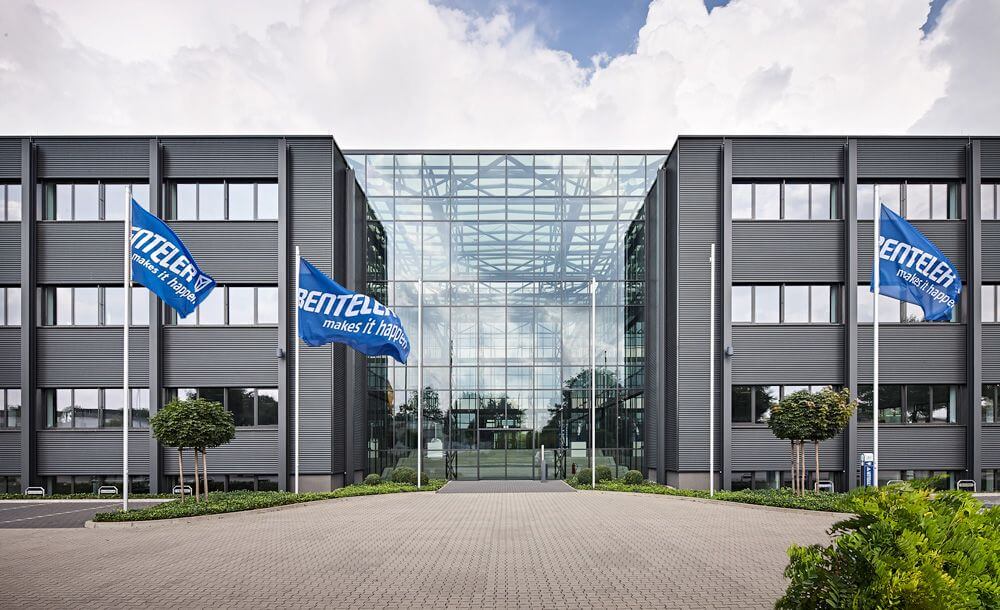Is this the autonomous vehicle manufacturer eyeing Jacksonville? (Courtesy of the Jacksonville Business Journal) — The likeliest autonomous vehicle manufacturer looking to set up shop in Jacksonville is Benteler International AG, according to a local engineering CEO who was involved with JTA’s driverless vehicle program in its early days.
Most of the other companies active in the autonomous shuttle space have either gone out of business or located elsewhere, said Matt Chang, CEO of Chang Industrial, an engineering firm focused on autonomous systems.
“The most likely contender is Benteler, who would produce their Holon vehicle here,” he said.
Chang was the program manager for the Jacksonville Transportation Authority’s Ultimate Urban Circulator program from 2017 to 2019. That program, which looks to use autonomous shuttles running on the track of the Skyway as well as city streets, would be a likely customer of whichever company sets up shop here.
Last week, the city unveiled a request for incentives from a company codenamed Project Link, which is looking to invest $100 million in manufacturing parts and assembling an electric autonomous vehicle in Northwest Jacksonville.
Dubbed Project Link, the unnamed company is a subsidiary of a global leader in the automotive industry. The company has no presence in the United States and is exploring expansion to the country, according to the project description.
Benteler certainly fits that description: Earlier this year, the company received a multimillion-dollar investment from a Saudi Arabian investment company, with the money slated to be used to establish three production sites for its autonomous electric shuttle, including one in the United States.
Benteler’s autonomous electric people mover, known as Holon, is not yet in production. The vehicle is being prototyped in Hamburg, Germany, by the country’s second largest mass-transit company. In the U.S., Orlando-based Beep is responsible for rolling out the vehicle.
JTA has had a long relationship with Beep, whose shuttle is being tested at the downtown campus of Florida State College at Jacksonville.
While the Holon shuttle is not ready for that type of testing, JTA did show off a non-working example of the vehicle during its National Autonomous Vehicle Day event last year. Also, JTA and Beep are “evaluating the deployment of Holon autonomous movers for the largest public sector AV deployment in the United States,” the company says on its website.
Having a shuttle made in America is vital for the U2C project, with the federal grants funding the initiative requiring domestic vehicles.
No autonomous shuttle has yet received the Made In America designation, although another company, Ohmio, recently announced it was moving its headquarters from New Zealand to Riverside, California.
Eric Jackson, the executive director of the Connecticut Transportation Institute, who researches the use and safety of autonomous vehicles said manufacturing these types of vehicles stateside can be challenging: While domestic manufacturers know vehicles, they don’t bring the rest of the technology stack.
“It’s definitely a challenge,” Jackson said. “The bus manufacturers themselves, they’re not experts in vehicle automation.”
Jackson’s work includes safety analysis for a Connecticut Department of Transportation’s automated vehicle pilot program that is also supported by an FTA grant that falls under the Buy American Act.
Autonomous vehicle manufacturing is mostly outside of the U.S., which can create challenges.
“There’s a lot of different bus manufacturers in the U.S.,” Jackson said. “There’s very few automation manufacturers in the U.S.”
But making the technology mesh is challenging.
“That relationship and that partnership … it’s potentially challenging as well, because none of this stuff is cheap,” Jackson said. “It’s all experimental, and trying to basically take a full-size bus and then automate all of the processes and procedures. It’s a huge task.”
Deployment of vehicle automation technology companies in Europe has advanced ahead of the U.S., Jackson said.
But bringing a foreign company into the U.S. requires adapting to systems in place domestically.
“There’s obvious challenges of trying to take a European system and make it work here in the U.S.” Jackson said. “Our laws are different, our signage is different. As long as the company can do that safely. I think that is perfectly fine.”
While the incentives for Project Link continue through the system — they require the approval of City Council — plans for the U2C are also continuing apace.
JTA is in the process of constructing the first phase of the U2C project. Earlier this year, the agency submitted site plans for the Bay Street Innovation Corridor, which will have autonomous vehicles operating in curbside lanes along Bay Street.
The Bay Street Innovation Corridor is a three-mile loop that will operate between Pearl Street and A. Phillip Randolph Boulevard.
The project is slated to cost up to $49.04 million.

